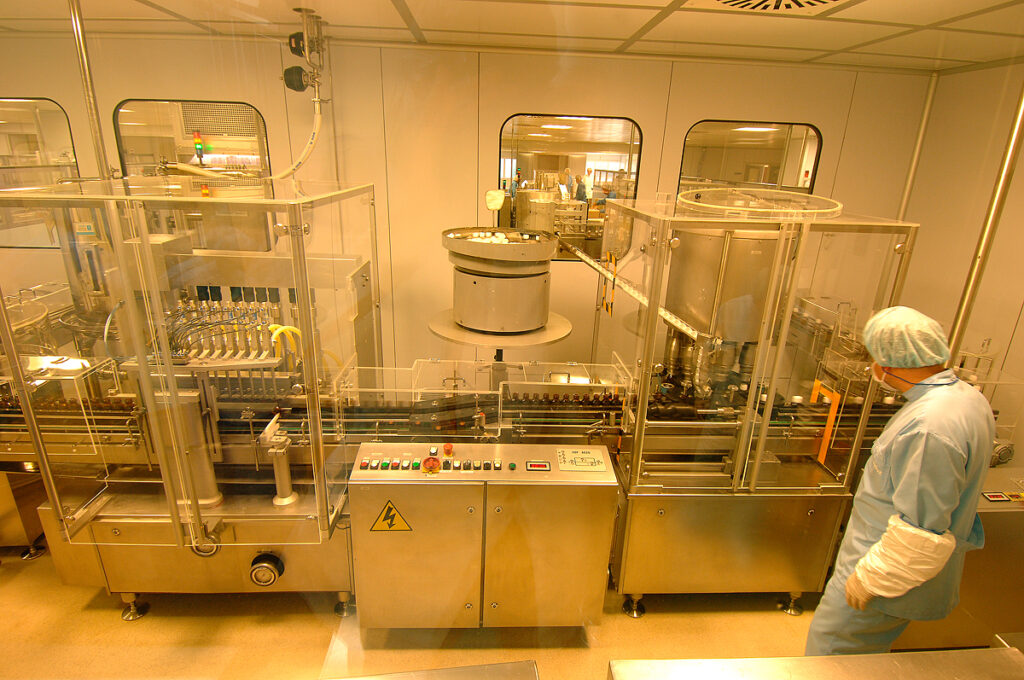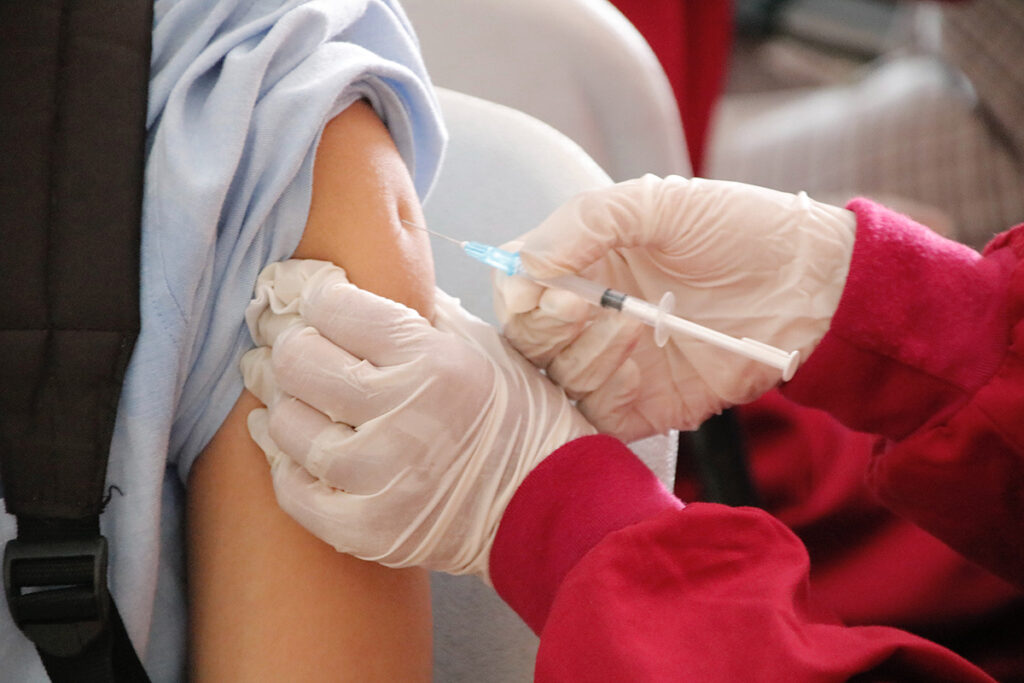Scientists at the La Jolla Institute of Immunology, USA, have found that T cells from people who have recovered from COVID-19 or received Moderna or Pfizer-BioNTech vaccines can recognize several strains of SARS-CoV-2. This property of the immune system allows the body to kill infected cells and prevent serious infections, even when faced with new mutations in the coronavirus.
What do coronavirus mutations affect?
Like all viruses, SARS-CoV-2 changes over time. The virus can become more infectious and infect the body at a faster rate. Virus mutations can affect the effectiveness of treatments and vaccines. The World Health Organization classifies such viral strains as of cause of concern (VOC).
Strains of concern for the coronavirus include:
- British strain – “Alpha”;
- South African strain – “Beta”;
- Brazilian strain – “Gamma”;
- Indian strain – “Delta.”
The most dangerous mutations are present in the viral spike protein (S). Some of these mutations increase the binding strength of the viral particle to the cell. They increase the infectivity, the ability of the virus to bypass the body’s defense systems and increase the viral load.
Mutations also reduce the neutralizing ability of antibodies that were formed after SARS-CoV-2 infection or vaccination:
- Mutations in South African and Brazilian strains are associated with the decreased neutralizing ability of antibodies formed after infection.
- Mutations in the British strain caused a partial loss of neutralizing activity of antibodies formed after the AstraZeneca vaccine administration. Moreover, mutations in the South African strain – an even more significant loss of neutralizing activity. Therefore, the AstraZeneca vaccine remains effective against the British strain but protects much less against COVID-19 when infected with the South African strain.
- The Novavax vaccine protects against the original strain, which appeared at the beginning of the pandemic, the British and South African strains by 96%, 86%, and 60%, respectively.
- The Janssen single-dose vaccine is 72% and 64% effective against the original and South African strains.
These facts posed a question for scientists: will vaccines protect against new strains of coronavirus?
T Cells Eliminate the Effects of Coronavirus Mutations
The body produces antibodies and pathogen-specific T cells that recognize and destroy antigen molecules foreign to the body in response to the virus. After COVID-19, some of these T cells become memory cells. They will respond to the same antigens the next time they meet, preventing or reducing disease severity.
The two main types of T cells are helper T cells (CD4 +) and killer T cells (CD8 +). The first ones activate T-killers, B-lymphocytes, and innate immune cells. The second – destroy the cells infected with the virus.
Helper T cells and Killer T cells play a vital role in resolving SARS-CoV-2 infection and reducing the severity of COVID-19. Both T cells are cross-reactive and protect multiple antigens.
A stable T-cell memory is formed both after COVID-19 and after vaccination. Therefore, the cross-reactive T cells are the key to eliminating the effect of viral mutations on the effectiveness of vaccines.
Study: Do T Cells Protect Against New Strains of SARS-CoV-2
Scientists investigated how efficiently T cells respond to new strains (VOC) in people who recovered from COVID-19 caused by the original strain and were recently vaccinated with Moderna or Pfizer / BioNTech. Control group of people who have never been exposed to SARS-CoV-2 (samples taken before the pandemic).
Scientists have found that CD4 + and CD8 + T cells can recognize mutated forms of the virus.
The research data was expanded to a broader range of strains, including the Indian strain Delta, which became predominant after the start of the study.
Research results
T cell responses to the original SARS-CoV-2 strain
- The CD4 + and CD8 + T cell responses to the original SARS-CoV-2 strain were significantly higher in the recovered than in the control group. 93% of those who recovered had CD4 + responses, 39% had CD8 + responses.
- The CD4 + and CD8 + T cell responses to the original SARS-CoV-2 strain were also significantly higher in the vaccinated compared to the control group. 100% of those vaccinated had CD4 + responses, 48% had CD8 + responses.
- T cell responses were found in 17%, 50%, and 76% of untreated, recovering, and vaccinated participants. These T cell responses served as benchmarks for the subsequent assessment of the impact of VOC mutations.
T cell responses to VOC in COVID-19 recoveries
- In recovered participants, the T cell response to the VOC S protein ranged from 38% to 45%. Compared to the original strain, there were significant reductions of 12%, 6%, and 14% for the British, South African, and Californian strains, while there was no difference for the Brazilian strain. The observed decline is within the range of technical fluctuations.
- The mutations found in the studied strains were not limited to the S-protein but also occurred in other proteins encoded in the SARS-CoV-2 genome. The reactivity towards mutated viral proteins was similar to the reactivity towards the original strain. The total reactivity throughout the genome did not decrease in comparison with the initial reactivity.
- Some T-lymphocyte reactivity to SARS-CoV-2 proteins was observed in participants not exposed to coronavirus. A possible cause is a previous exposure to the common cold coronaviruses or other pathogens or autoantigens. The size of T-lymphocyte responses was smaller than that of those who recovered from COVID-19. As with those who recovered from COVID-19, the untreated participants did not decrease CD4 + and CD8 + T cell responses by the sum of all antigens. These experiments show that CD4 + and CD8 + T cells of people infected with the original SARS-CoV-2 strain recognize VOC with similar efficiency.
T cell responses to VOC in vaccinated
Scientists have focused on the reactivity of T cells to the S-protein of the original strain, which is the basis of the currently used vaccines.
- Comparing CD4 + and CD8 + T cell reactivity to the original strain and VOC did not show significant differences between the British and Brazilian strains.
- Decreases of 14% and 22% were observed for the South African strain for CD4 + and CD8 + T cells, respectively.
- A 10% reduction was observed for the California strain for CD8 + T cells.
The observed decline is within the range of technical fluctuations.
Memory T cell response
The meeting of the organism with the S-protein of the original strain as a result of infection or vaccination triggers a memory T-cell response that can cross-recognize new mutations in SARS-CoV-2.
How different are the proteins of different strains of coronavirus?
On average, 93% of viral proteins (epitopes) recognized by CD4 + T cells are conserved for the British, South African, Brazilian, and Californian strains (89.6%, 90%, 94.3%, and 97.1%, respectively). If we consider the number of epitopes and the magnitude of T-cell responses, then completely conserved epitopes of CD4 + T cells average 91.5% (84.4%, 88.1%, 95.7%, and 97.8%) …
97.1% of CD8 + T cell epitopes are completely conserved for the British strain, 97.3% for the South African and Brazilian strains, 97.9% for the Californian strain. Taking into account the value of CD8 + T-cell responses: 98.3%, 98.4%, 97.9% and 97.8%, mean value 98.1%.
The degree of conservation of T-cell epitopes in the S-antigen is 84.5% for CD4 + T-cell epitopes and 95.3% for CD8 + T-cell epitopes. Taking into account the size of CD4 + T-cell responses to S-epitopes: completely conserved CD4 + T-cell epitopes are 95.5%, 75.3%, 89.8% and 98.3% for the British, South African, Brazilian and Californian strains, respectively , with an average of 89.7%. For CD8 + T cell responses: 95.2%, 97.6%, 95.4% and 97.3%, average 96.4%.
The vast majority of CD4 + and CD8 + T cell epitopes are not affected by mutations found in various strains. It means that mutations will have little effect on the overall T cell response, so T cells in convalescent and vaccinated people can still protect against COVID-19.
Conclusions
New coronavirus strains are associated with greater infectivity and reduced susceptibility to neutralizing antibodies produced by infection or vaccination.
However, the effect of mutations is limited. The new strains do not significantly disrupt overall T cell responses. While circulating memory T cells are not expected to prevent SARS-CoV-2 infection effectively, they may reduce the severity of COVID-19.
These results are essential for developing vaccines against pancoronavirus – with broader protective immunity against new strains. An alternative approach to vaccine development is the inclusion of additional antigens and T-cell epitopes, selected based on their low tendency to mutation. This approach will complement the neutralizing antibody response with T-cell responses and minimize morbidity and mortality from COVID-19.



